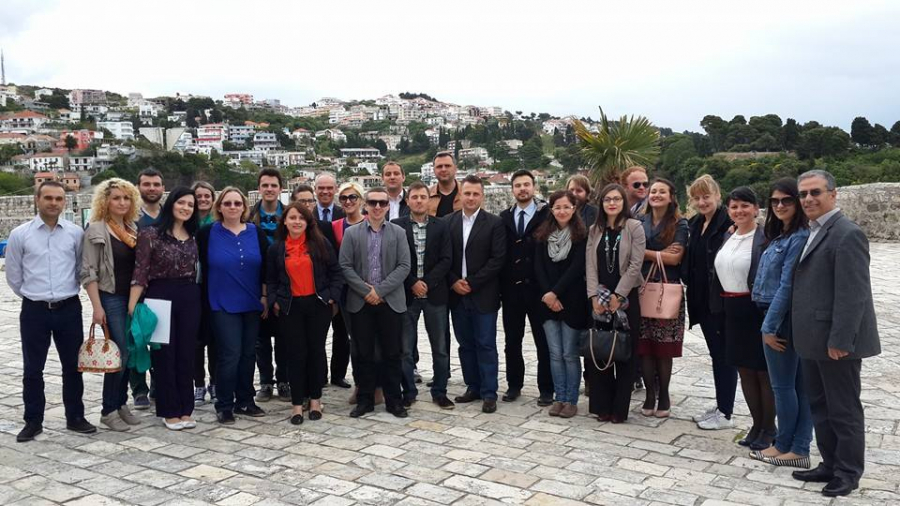16/05/2014

For five days in Ulqin, 12 – 16 May 2014, the Summer School on Security Policy gathered a number of young professionals, journalists, civil society activists and graduate students from Albania, Serbia and Kosovo in order to establish links of communication and cooperation, increase the civilian capacities as well as engage in joint exploration of security gaps and democracy deficits maintained by frozen conflicts.
The Summer School on Security Policy was organized as a part of joint three-year long project Security Research Forum (SRF) Belgrade-Prishtina-Tirana funded by the Norwegian Ministry of Foreign Affairs. With SRF, we want to enhance understanding of mutual security issues by establishing various links among security policy communities (Belgrade-Prishtina-Tirana) and increasing transparency in security governance. For more information about the regional project Security Research Forum: Belgrade-Prishtina-Tirana please click here.
The Summer School gathered six participants from each country with different background and profession, who engaged in joint discussions, small groups, scenarios as well as lectures from regional experts on security and rule of law.
The first day of the Summer School on Security Policy was devoted to getting to know each other and the concept of national security led by BCSP Executive Director, Sonja Stojanovic. The participants were divided into small mixed groups in order to compare and analyze the National Security Strategy of Kosovo, Albania and Serbia.
On the second day, KCSS Executive Director, Florian Qehaja, lectured the concept of security sector reform (SSR) and involved participants into smaller groups to discuss and indentify the main actor of the SSR. The second day also welcomed the three guest speakers from Germany, Abit Hoxha, Marc Jungblut and Katsiaryana Stalpouskaya, all PhD candidates at Ludwig Maximilian University (Munich) -, who discussed the discourse of media coverage in conflict areas.
The Summer School on Security Policy also gave participants the chance on visiting and getting to closely know the work of Municipality of Ulqin and the Police Station in Ulqin. On the morning of the third day, the whole group visited the Office of the Mayor of Ulqin, who discussed about security issues in the town, tourism, and economic development of Ulqin. The meeting with Police Commander, Sead Djozović, was mainly focused on the police functionality on multi-ethnic town.
A great interest and engagement by participants was shown in the Scenario Planning exercise led by KCSS Senior Researcher, Shpend Kursani. Participants were engaged in developing possible scenarios of the future relations and the ways of developing such relations in the triangle Belgrade-Prishtina-Tirana.
In the framework of Summer School, the participants had the chance on listening and discussing the two presentations from BSCP, KCSS and IDM researchers on the topics covered by the Security Research Forum. IDM Senior Researcher, Foto Duro, has presented the costs and benefits of Albania’s membership to NATO. While BSCP and KCSS researcher, Bojan Elek and Fjolla Raifi, gave the presentation on the recent joint publication ‘Police Integration in North Kosovo: Progress made and Remaining Challenges’.
The fourth day of the Summer School on Security Policy was characterized with the panel discussion on Regional Security Cooperation with Predrag Vujicic from RCC, Dzenita Brcvak from CEDEM, Sonja Stojanovic from BCSP and Florian Qehaja from KCSS. They provided presentation on the benefits and costs of regional security organizations and the long established cooperation between the regional civil society organizations.
The Summer School on Security Policy ended up with the discussion on the normalization of the relations in the region. The participants engaged into small groups in order to discuss and close the five days workshop with long-term proposals and approaches in specific policy areas, mainly in security sector and rule of law.
At the end of the five days workshop and discussions, the participants were greeted by Defence Attaché from the Norwegian Embassy in Belgrade, Esben Ass, and were awarded with Certificate of Participation.